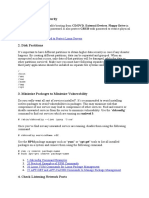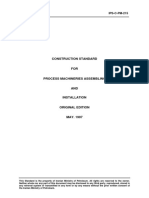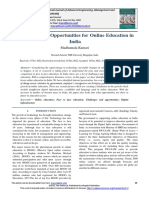0% found this document useful (0 votes)
48 views4 pagesRandom Idea
This script configures security settings on an Ubuntu system by reading options from a config file, updating packages, enabling the firewall and auditing, restricting SSH access, locking accounts after failed logins, strengthening passwords, scanning for media files and viruses, and logging processes and network connections.
Uploaded by
nullrabbit5Copyright
© © All Rights Reserved
We take content rights seriously. If you suspect this is your content, claim it here.
Available Formats
Download as TXT, PDF, TXT or read online on Scribd
0% found this document useful (0 votes)
48 views4 pagesRandom Idea
This script configures security settings on an Ubuntu system by reading options from a config file, updating packages, enabling the firewall and auditing, restricting SSH access, locking accounts after failed logins, strengthening passwords, scanning for media files and viruses, and logging processes and network connections.
Uploaded by
nullrabbit5Copyright
© © All Rights Reserved
We take content rights seriously. If you suspect this is your content, claim it here.
Available Formats
Download as TXT, PDF, TXT or read online on Scribd
/ 4
















































































